Introduction
From the perspective of people in a packed arena, a sports event is mostly broad strokes: laps, rounds, and the score. However, for athletes and their coaches, nutritionists, physical therapists and others in their team, the game is granular. To the athlete, the work starts much earlier than the blowing of the whistle – and the exhilarating level of competition the audience sees is only a part of a much bigger cycle in the lives of athletes and the team behind them.
To get themselves to the top of their game, athletes start their nutrition preparation early – this is called Pre-Event Nutrition. This involves paying close attention to nutrition prior to the event in order to optimize their performance – and the responsibility of making sure an athlete is properly fueled for an event, falls on the capable hands of the sports dietitian.
The sports dietitian is the one who fine-tunes the Pre-event Nutrition of an athlete must develop in a given timeframe. An athlete’s food preference is given utmost regard so as to mitigate the demands of the adjustment. It’s a close relationship that many do not know about; one that is especially shrouded in myth for casual sports enthusiasts.
However, by knowing more about it, individuals outside the elite athlete population, such as the weekend warriors and recreational athletes may also reap the benefits of optimizing pre-event nutrition, all because at the end of the day, good nutrition will always be beneficial.
As we delve deeper into the topic of Pre-Event Nutrition, what it entails and what it leads to, we asked Ms. Isabel Martinez, a nutrition scientist who graduated Bachelors in Community Nutrition in the University of the Philippines – Diliman, earned her Master in Science Degree in Kinesiology from the University of Illinois at Urbana-Champaign and has recently completed a Diploma in Sports Nutrition from the International Olympic Committee under a scholarship.
Nutrition Masterclass: Hi, Isabel! It’s nice to meet you. Let’s start the interview by telling us something about your professional background.
Isabel: My major area of study was exercise physiology, and I also worked with the Nutrition and Exercise Performance Research Group with my mentor Dr. Nicholas Burd. Our group focused on exercise- and nutrition-based interventions and its impact on physical performance and health, with an emphasis on skeletal muscle metabolism. Our studies were not only specific to athletes but also to specific populations - aging, obesity, and chronic metabolic disease-states. My research mainly focused on the impact of dietary protein density on training-induced muscle performance and overall health among middle-aged adults.
I’ve worked with both elite and developmental athletes from various sports, such as windsurfing, triathlon, football, track & field, and tennis.
Pre-Event Nutrition
NM: Let’s jump in! What is Pre-Event Nutrition?
Isabel: Strictly speaking, Pre-Event Nutrition means preparing nutritionally before a competition. Its primary goal is to contribute to an athlete’s performance by making sure that they are properly fueled. This means enhancing the fuel stores in the muscles and the liver, known as the glycogen stores, and also ensuring optimal hydration. This is a part of ‘fine-tuning’ the competition preparation. Other goals are preventing hunger and other forms of gut discomfort during performance.
Given this, a sports dietitian should cater to the individual needs of the athlete, making sure to consider the food and practices that are important to the athlete.

Basic concepts of Pre-Event Nutrition
NM: For beginners to Pre-Event Nutrition, what are the basic concepts to follow?
Isabel: Strictly speaking, Pre-Event Nutrition means preparing nutritionally before a competition. Its primary goal is to contribute to an athlete’s performance by making sure that they are properly fueled. This means enhancing the fuel stores in the muscles and the liver, known as the glycogen stores, and also ensuring optimal hydration. This is a part of ‘fine-tuning’ the competition preparation. Other goals are preventing hunger and other forms of gut discomfort during performance.
Given this, a sports dietitian should cater to the individual needs of the athlete, making sure to consider the food and practices that are important to the athlete.
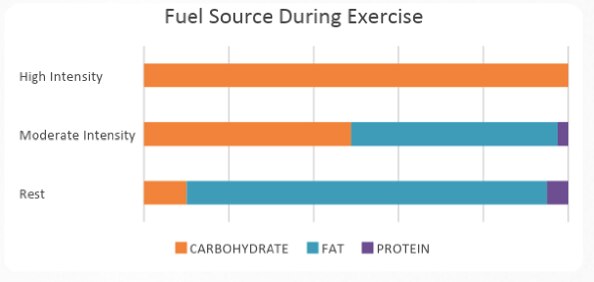
Figure 1.
Aside from being high in carbohydrates, other factors to consider in a pre-event meal are the amount, timing, type, and of course hydration. Individualized hydration plans should be developed for each athlete based on their usual sweat loss. This is pre-determined during training sessions by comparing their body weight before and after with a goal difference of not more than 1 - 2 % and the composition of their sweat.
For the AMOUNT, general recommendations are, if you have 3 - 4 hours before a competition or event, the meal should include 3-4 grams of carbohydrates per kilogram of body weight – essentially a full meal. If the event is only 1-2 hours away, the carbohydrate intake should be around 1 - 2 grams per kilogram of body weight – this is usually in the form of a smaller meal or a snack.
The pre-event meal is also event-specific. In events that run past 60 minutes, it is highly recommended that athletes consume food prior. For sessions that have short durations, fasting may be done during training, but is not recommended during competitions or during sessions wherein high-intensity efforts are necessary.
TIMING is important as well. As an example, for long distance races, such as triathlons which usually have a race start at around 6 – 7 AM or in the Philippines, wherein there’s this full marathon that starts at 12 midnight, some changes in the eating pattern of an individual may be required. Consequently, it also adds some challenge in properly timing their nutrition and prioritizing between getting more hours of sleep or waking up earlier to be able to allot adequate time to digest a meal.

The type of food generally coincides with the available time before the event. For example, high-fiber and-fat foods are not recommended prior to a competition, since fiber and fat delay digestion. Digestion diverts energy needed by the muscles and can indirectly dampen performance. Liquid nutrition such as shakes may be considered if time is limited, since these are easily digestible and well tolerated. Pre-event nutrition aims to prevent discomfort during the event; thus, the dietitian should consider gastrointestinal issues and what an athlete can tolerate in terms of type and amount.

How “Pre” should “Pre-Event Nutrition” be?
NM: How “Pre” should “Pre-Event Nutrition” be? Hours, days, weeks, months?
Isabel: Personally, I consider day-to-day nutrition as the bigger game plan where pre-event nutrition is part of. Once the training has been plotted, the nutritionist should look at it and assess how to match nutrition. Nutritional needs for an athlete are not static, and as an athlete increases training load, so should nutritional support. Since it’s during training that you can test out different pre-event meals to figure which one works best, it really begins before competition day.

Pre-Event Nutrition based on different sports
NM: Does pre-event nutrition differ per sport?
Isabel: The general guidelines for pre-event nutrition don’t vary a lot among sports, what’s more important is considering the individual factors associated with the athlete and the sport. I would say that each sport has its peculiarities, especially when it comes to competition, such as time of start, location, duration and format of the event (e.g., football carnivals that last all day vs. a volleyball match that lasts only for a couple of hours).
At the end of the day, pre-event meal planning is very individualized and focuses on what is feasible on race-day.

Pre-Event Nutrition Based on Age
NM: Does pre-event nutrition differ between young athletes and adult athletes?
Isabel: Of course, young athletes or child athletes are still growing and built differently compared to adult athletes, so there are potential differences in how they store and utilize energy stores.
However, there are no definitive recommendations with regard to pre-event nutrition for children and adolescents in sports. I guess, as a basis, we can compare active kids to non-active kids. Kids in general already have high demand for energy because they’re growing, and engaging in sports increases that demand further, and this translates to increased nutritional needs. Nutritional intake would also depend on the type of sport, for example swimming versus golf.

Cost of Pre-Event Nutrition
NM: Will pre-event nutrition entail huge costs? Whether or not it does, what are readily available and accessible (read: affordable) meal plan components?
Isabel: I think cost is not a huge barrier to pre-event nutrition. As I’ve mentioned earlier, the pre-event nutrition should be some version of the usual diet of the athlete. It’s just a matter of tweaking.
As for components, think high-carbohydrate, low-fat, and low-fiber. In the Philippines, we have a lot of carbohydrate-rich food, so athletes and their dietitians can have their pick. Breakfast cereals, bread, rice, pasta, potatoes –there are a lot. As mentioned, we have to consider the event timing and amount of these foods, and the athlete’s preference, of course.

Markers of Pre-Event Nutrition
NM: What markers (blood sugar, protein levels, etc.) should be closely observed during pre-event meal planning?
Isabel: In a field setting, blood markers are rarely monitored as compared to a research setting. A more practical method would be monitoring of the symptoms, or how an athlete feels after eating certain foods. Another important thing to observe –and this is crucial on the event day — is hydration status. One easy way to do this is by checking urine color upon waking up.
Sample Meal Plan
NM: Can you give us a sample pre-event meal plan?
Isabel: Here are some…
Half Ironman Triathlon
- Event duration is approximately 4 – 6 hours depending on skill level
- Early race start at round 6:00 – 7:00 AM
| Timing | Sample Pre-Event Nutrition* |
|---|---|
| Full meal 3 - 4 hours before | 1 ½ cup oatmeal 1 cup milk, low fat 1 Tbsp peanut butter 2 Tbsp honey/syrup/sugar 1 pc banana 1 - 2 cups sports drink Water/drink of choice
OR |
| Top-up carbohydrate stores 1 - 2 hours before | 1 ½ cup rice Tuna omelet (1 pc egg and 1/3 cup canned tuna in water) 1 pc banana 1 - 2 cups sports drink Water/drink of choice
AND
Sports drink or Carbohydrate gels/chews with water |
*Recommendations based on a 60kg athlete
Tennis Morning Match
- Event duration is approximately an hour
- Event start is mid-morning
| Timing | Sample Pre-Event Nutrition* |
|---|---|
| Smaller meal or a snack 1 - 2 hours before start | 2 pcs white bread 1 Tbsp jam 1 pc boiled egg 1 - 2 cups sports drink
OR
Fruit smoothie 1 pc banana ½ cup milk or milk alternative ½ cup yogurt 2 Tbsp sugar Ice Water |
*Recommendations based on a 60kg athlete
Can pre-event nutrition complement a recovery plan?
NM: Can pre-event nutrition complement a recovery plan? Do these stages go hand-in-hand?
Isabel: Yes. Pre-event and recovery are parts of one big plan that supports the athlete across the training season until major competitions. They go hand-in-hand to make sure that the athlete gets the most out of the training and perform their best on the event day.
To distinguish pre-event nutrition from recovery nutrition, pre-event nutrition focuses on ensuring that the athlete is well-fueled and performance will be smooth-sailing. On the other hand, recovery nutrition focuses on getting the athlete back to fighting form and maximizing adaptations from training.

Does good nutrition directly translate to good performance?
NM: Does good nutrition directly translate to good performance?
Isabel: In any sporting event, the athlete’s performance is the ultimate measure of success. Factors leading to that success are a multitude, from the mindset, level of rest, genetics, and others (Figure 2). Good nutrition, while very important, isn’t the only factor that gives the athlete the lead.

Figure 2. Determinants of an Athlete’s Performance
Pre-Event Nutrition outside the elite athlete circles
NM: Outside the elite athlete circles, who else should be paying attention to Pre-Event Nutrition?
Isabel: Everybody will benefit from eating well. Plus, if you’re already working out or competing, even if you’re not an elite athlete, you’d want to do your best to achieve your best performance. This means that pre-event nutrition will benefit recreational athletes, especially those with health-related goals. More than performance, pre-event nutrition also contributes to your confidence in taking part in the sport, because you’re taking care of something that is in your control.

NM: Thank you, Isabel Martinez, for introducing us to pre-event nutrition. Indeed, there are many unseen faces behind one athlete, and dietitians such as yourself deserve bigger platforms to educate the public about the role of nutrition.
We’ve now taken a peek at the inner workings of a fine-tuned diet, but this is only the pre-event meal. Another slice of the athletic routine is recovery nutrition, which will be covered in another article.
For years, pre-event nutrition has been proven effective and even crucial for Olympic-level athletes. However, it’s not an exclusive club. Casual sports enthusiasts and starters alike are invited to familiarize themselves with their diets and take control of their nutritional intake. Adapting to a healthier diet isn’t expensive, but it might take some adjustment. Therefore, it’s always helpful to talk to a dietitian to achieve your health goals.
Sports hones important life skills: discipline, self-confidence and determination. Know more about MILO and sports by visiting this link.
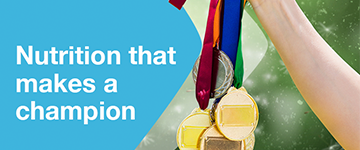
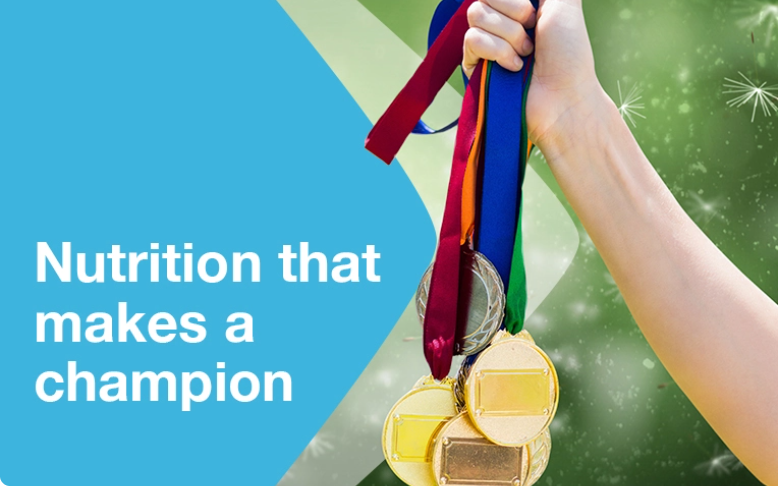
 Isabel G. Martinez , RND, MSc
Isabel G. Martinez , RND, MSc








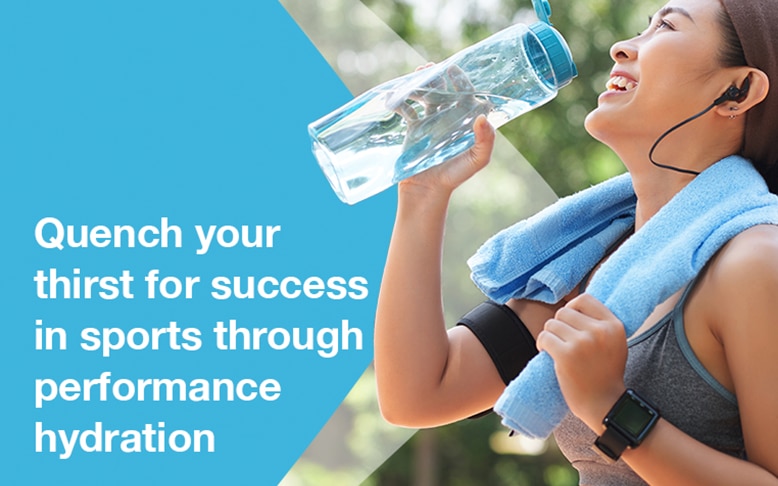


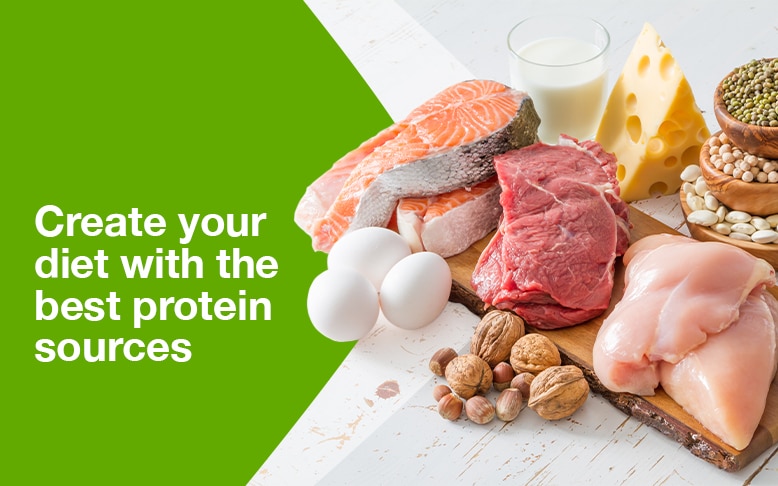


No comments here yet.